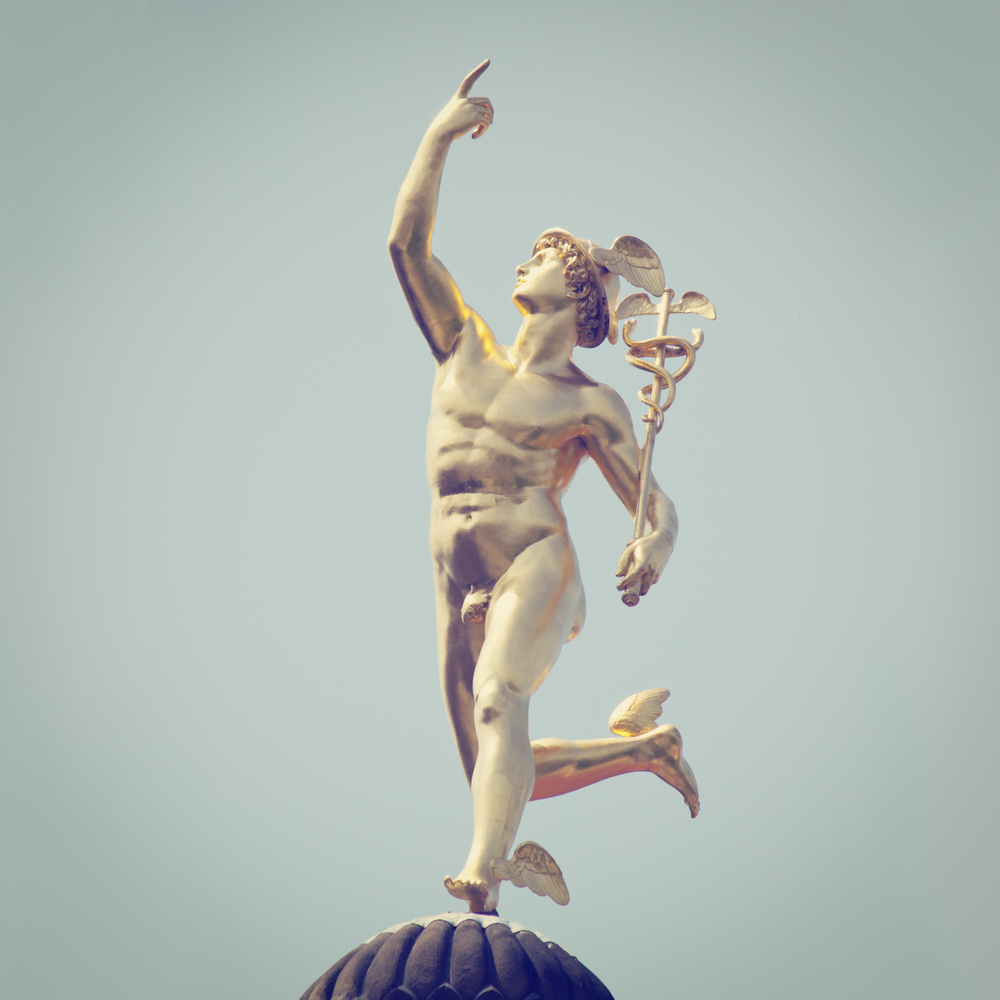
The average person encounters countless misfortunes in his or her lifetime. When it comes to matters of career, love, money, family, or achievement, people usually like to hope for the best. In fact, “hope” is putting it mildly. For as far back as recorded history allows, humanity has employed near-infinite tactics to encourage good fortune. In fact, deities of fortune are some of the more common examples found across all ancient civilizations. Look over these deities and learn a bit more about the spiritual forces of luck.
Mercury
When the Roman Empire gobbled up the entirety of the civilizations found along the Mediterranean Sea, it adopted a majority of the popular gods and goddesses of the time. Most, if not all, of the notable Roman deities were renamed versions of Greek gods. The Greek god Hermes, for example, became Mercury when the Romans came through. While Hermes was viewed more as a messenger and symbol of speed, Mercury grew to be one of several Roman deities of fortune. Specifically, Mercury was a patron god to those who owned businesses or worked as merchants.
Beliefs among the people of the Roman Empire varied, but most felt that honoring Mercury was a way of warding off thieves. Later, people would also pray to Mercury or make offerings to him when looking to secure a good investment or business transaction.
Teutates
Though a good chunk of Celtic mythology has been lost to time, one prominent deity that has been recorded and studied is Teutates. This god was associated with the fields of farmers, with people making routine offerings to him to secure the health and heartiness of the crops. Since Teutates was worshipped long ago, sacrifices to the god were significant. There are several recordings of the specific manner in which human beings were sacrificed to Teutates in order to keep agriculture alive.
Plutus
Though not as prominent as other figures of the Greek pantheon, Plutus was a noteworthy figure worshipped throughout the Mediterranean region. The god was most frequently associated with money. Specifically, Plutus had the task of determining which mortals were worthy of fortune. To ensure that all of the decisions made by the god were just and unbiased, Zeus saw that his eyes were removed. By taking away his sight, Zeus believed fortune would favor those who truly deserved it.
Interestingly, a version of Plutus was used prominently in Dante’s Inferno. Here, Plutus is depicted as a demon instead of a god. He also is meant to be a representation of greed and all of the bad that comes about when a person pursues fortune and fame. These traits were all unique to Dante, as there are no overt demonic or greedy depictions of the Greek Plutus.
Lakshmi
Hinduism is one of the world’s oldest religions still practiced today. According to this belief system, the goddess Lakshmi is associated with wealth. Not only does Lakshmi represent the material wealth of the world, she is also meant to be connected to spiritual abundance. One of the more prevalent depictions of Lakshmi has her with gold coins falling from her hand. It is quite common for modern Hindus to create small altars to Lakshmi in their homes as a way of encouraging material and spiritual health. Lakshmi is also honored during the celebration of Diwali.
Most people would appreciate a little extra luck and cash every now and again. While there really is no secret way to guarantee fortune in your future, it is interesting to note how many people believe that they can twist fate in their favor by whispering a handful of words to the right couple deities of fortune.

